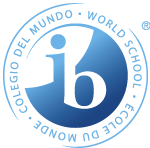Policies
Code of conduct
Academic Behaviour
At Aarhus Gymnasium we expect our students to participate actively in the learning process.
- Attendance at all lessons is mandatory. Students must arrive at lessons on time. Reasons for any absence must be provided by students as quickly as possible. Students must contact the school (i.e. their student counsellor or the Pre-IB or IB Coordinator) if they know in advance that they will be absent from school.
- Constructive and active participation in all lessons is required of all students.
- Homework must be completed properly on time and is a fundamental requirement of being an active student.
- Written assignments must be completed to the best of students’ abilities and handed in on time. Failure to do so will result in absence for the assignment and, at the teacher’s discretion, exclusion from class until the assignment is completed.
- Computers, devices and social media may only be used in class if allowed by teachers and for educational purposes only.
- As an IB World School, Aarhus Gymnasium is committed to principles of academic honesty: Students’ work must be their own and plagiarism will not be tolerated.
- Students are responsible for managing their time so that schoolwork is completed properly.
Social Environment
Aarhus Gymnasium is a school founded on mutual respect, kindness and openness and students must respect the other students and the staff of the school.
- Bullying, violence or threatening behaviour will not be tolerated. This also applies when using social media or other forms of communication.
- Students may only take or publish pictures of another student or staff member with the consent of that person.
- The instructions of teachers and staff must be respected.
- Students must respect the beliefs and choices of others.
- Aarhus Gymnasium is a school where religion is considered a private matter. Religious rituals may only be practised alone (i.e. not in groups) and in places where no one else is present.
Physical Environment
At Aarhus Gymnasium the staff work hard to create pleasant physical and aesthetic surroundings. In return, we expect that students take responsibility for ensuring that the school and its environs are treated with respect.
- School property, furniture and equipment must be treated with due care at all times.
- Eating in class is not permitted and students have a responsibility to tidy up after themselves and to encourage others to do the same.
- Classrooms must be left in a tidy condition after each lesson. Rubbish must be removed, desks returned to their correct places and chairs put up so that floors can be cleaned.
- Students must help to create a quietworking environment in classrooms, halls and in the canteen.
- Aarhus Gymnasium is a no-smoking school and students must adhere to the school’s smoking policy.
- Narcotics of any form are not allowed in the school.
- The consumption of alcohol is forbidden during ordinary school hours and may only be consumed in conjunction with special events and at the discretion of the Head of School.
- Vehicles must be parked in the marked bays and vehicles travelling to and from the school must be driven in a duly considerate manner.
- Students are expected to be appropriate ambassadors for the school during school-related activities outside of school property.
Breaching the code of conduct may result in a warning, a suspension or, in extreme or repeated cases, expulsion.
Students are financially responsible for their actions.
------------------------------------------------------------------------------------------------------------
IB Learner Profile
The aim of all IB programmes is to develop internationally minded people who, recognizing their common humanity and shared guardianship of the planet, help to create a better and more peaceful world.
As IB learners we strive to be:
- INQUIRERS
We nurture our curiosity, developing skills for inquiry and research. We know how to learn independently and with others. We learn with enthusiasm and sustain our love of learning throughout life. - OPEN-MINDED
We critically appreciate our own cultures and personal histories, as well as the values and traditions of others. We seek and evaluate a range of points of view, and we are willing to grow from the experience. - KNOWLEDGEABLE
We develop and use conceptual understanding, exploring knowledge across a range of disciplines. We engage with issues and ideas that have local and global significance. - CARING
We show empathy, compassion and respect. We have a commitment to service, and we act to make a positive difference in the lives of others and in the world around us. - THINKERS
We use critical and creative thinking skills to analyse and take responsible action on complex problems. We exercise initiative in making reasoned, ethical decisions. - RISK-TAKERS
We approach uncertainty with forethought and determination; we work independently and cooperatively to explore new ideas and innovative strategies. We are resourceful and resilient in the face of challenges and change. - COMMUNICATORS
We express ourselves confidently and creatively in more than one language and in many ways. We collaborate effectively, listening carefully to the perspectives of other individuals and groups. - BALANCED
We understand the importance of balancing the different aspects of our lives - intellectual, physical and emotional - to achieve well-being for ourselves and others. We recognize our interdependence with other people and with the world in which we live. - PRINCIPLED
We act with integrity and honesty, with a strong sense of fairness and justice, and with respect for the dignity and rights of people everywhere. We take responsibility for our actions and their consequences. - REFLECTIVE
We thoughtfully consider the world and our own ideas and experience. We work to understand our strengths and weaknesses in order to support our learning and personal development.
